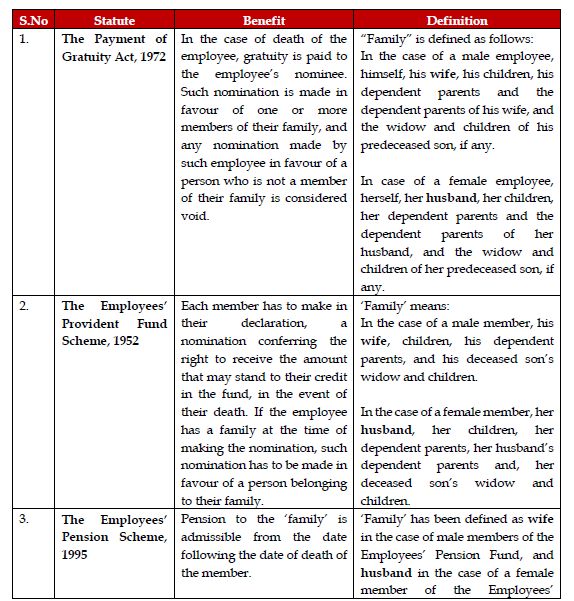- within Employment and HR, Family and Matrimonial and Environment topic(s)
- with readers working within the Technology, Utilities and Law Firm industries
I. INTRODUCTION
Last month, the Supreme Court of India began hearing a batch of 20 petitions seeking the legal recognition of same-sex marriages. A five-judge constitution bench comprising the Chief Justice of India DY Chandrachud, and Justices Sanjay Kishan Kaul, S Ravindra Bhat, PS Narasimha, and Hima Kohli began hearing the petitions mid-April, with both sides concluding their arguments on May 11, 2023. While at least two of these writ petitions were originally filed in the Supreme Court, nine other petitions seeking the same relief in the High Courts of Delhi and Kerala were transferred to the Supreme Court earlier this year. Acknowledging that these petitions raised issues of "seminal importance," the Supreme Court also allowed for the live streaming of the arguments.
The constitution bench will ultimately decide whether the petitioners' rights to life and personal liberty and right to dignity, have been impinged by the failure to recognize the right of couples of the same sex to marry. The first hearing that took place on April 18, 2023, sparked vigorous debate on the maintainability of such petitions, prior to arguments formally commencing. The Union of India submitted that the ability to allow couples of the same sex to marry lies solely within the powers of the legislature. Given that the legislature has not promulgated any statutes in relation to same sex couples, the solicitor general of India put forth that there was no legal basis for the Supreme Court to adjudicate the current batch of petitions.
II. PETITIONERS' RELIEFS AND SCOPE OF HEARING
The current batch of petitions seek a declaration from the Supreme Court to formally recognize the rights of same sex couples to marry. To achieve this, the petitioners urged the Supreme Court to read down various terms in the Special Marriage Act, 1954, instead of striking down the entire statute as unconstitutional. Specifically, the petitioners urged the Supreme Court to use interpretative devices to read in the term 'spouse' wherever the terms 'husband' or 'wife' are utilized in the statute, and to read in the term 'person' wherever the terms 'man' or 'woman' are referenced to in the statute.
Along with the maintainability of these petitions, a much-debated point was the consequential ramifications of allowing couples of the same sex to marry. The solicitor general and some of the intervenors primarily argued that doing so would wreak havoc in the realm of personal laws. In response, the Chief Justice of India assured the parties that the constitution bench would steer clear of personal laws and limit the scope of the hearing to the Special Marriage Act, 1954. While the petitioners were largely in agreement with the scope of the hearing, they did argue for certain consequential interpretations of 'civil law' and other 'secular' statutes. For instance, recognition of same sex marriages would necessarily mean the recognition of the rights of such spouses with respect to retiral benefits, such as pension, gratuity, etc. To not do so, would leave same-sex couples with a 'shell of a marriage' without any of the socio-economic benefits granted to heterosexual couples.
III. POTENTIAL IMPLICATIONS IN EMPLOYMENT LAW
Given the larger context, if couples of the same sex are granted the right to marry under the Special Marriage Act, 1954, then a number of labour legislations would also have to be construed accordingly. A few crucial statutes and the corresponding rights that would flow from such declaratory reliefs as discussed above are as follows:


IV. INDUSLAW VIEW
At the time of publication of this article, the Chief Justice of India has requested the solicitor general to submit a statement regarding the potential benefits that the Government of India would be willing to confer on same sex couples, not including the formal recognition of marriage. Referring to them as 'human concerns', the solicitor general assured the constitution bench that the Government of India was willing to work towards these solutions. On May 3, 2023, the solicitor general informed the Supreme Court that the government was amenable to setting up a committee headed by the cabinet secretary to discuss the issue with the petitioners and deliberate on administrative steps that could be taken to ease their concerns. While the scope of benefits that the Government of India may be willing to concede to same-sex couples is unknown, the solicitor general's oral submissions confirming that the government would be willing to at least meet the petitioners halfway is, however, a significant step towards to a more diverse and inclusive future.
The content of this article is intended to provide a general guide to the subject matter. Specialist advice should be sought about your specific circumstances.



